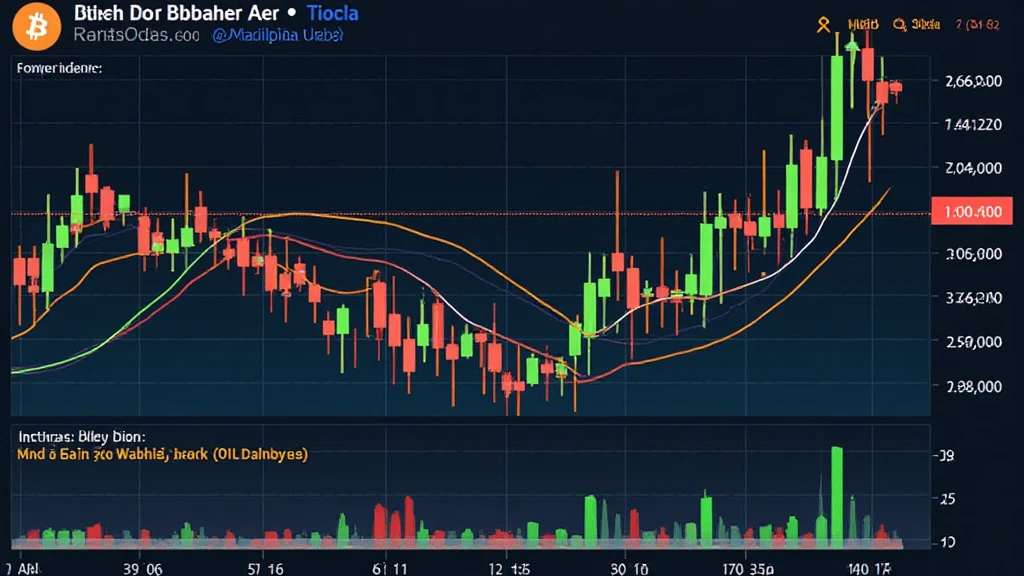Introduction
In the past decade, the rise of blockchain technology has reshaped many sectors, and real estate is no exception. Vietnam, in particular, has seen a remarkable growth in blockchain adoption, contributing to a more secure and efficient way of handling property leasing contracts. To put this into context, according to recent statistics, the number of blockchain users in Vietnam rose by 106% in 2022, indicating a burgeoning interest in this revolutionary technology.
One of the most promising applications of blockchain in real estate is property leasing contracts. The use of smart contracts to facilitate these agreements brings a level of transparency and security that traditional methods simply cannot match. In this article, we will dive deep into how blockchain is transforming property leasing contracts in Vietnam and what the future holds.
Understanding Blockchain Technology
To appreciate the impact of blockchain on property leasing, it’s important to understand the technology behind it. Blockchain is essentially a decentralized ledger that records all transactions across a network of computers, ensuring that the data is secure, transparent, and immutable.

- Decentralization: Unlike traditional databases that are controlled by a central authority, blockchain offers a decentralized alternative where no single entity has control over the entire system.
- Transparency: With each transaction visible to all network participants, blockchain promotes honesty and reduces the likelihood of fraud.
- Immutability: Once a transaction is recorded on the blockchain, it cannot be altered or deleted, providing a secure record of every agreement.
The Role of Smart Contracts
Smart contracts play a crucial role in blockchain property leasing. These are self-executing contracts with the terms of the agreement directly written into code. They automatically enforce and execute the terms once predetermined conditions are met. Here’s how smart contracts streamline the leasing process:
- Automated Execution: Once the tenant pays the rent, the smart contract automatically initiates the lease term.
- Reduced Costs: By eliminating intermediaries, smart contracts significantly lower transaction costs.
- Increased Security: The transparent nature of smart contracts ensures that both parties fulfill their obligations without the risk of one party defaulting.
Regulatory Landscape in Vietnam
The landscape for blockchain technology in Vietnam is evolving. The Vietnamese government has begun to recognize the potential of blockchain and has been working on regulations that encourage its adoption. As of now, the Vietnam Blockchain Association has begun initiatives to create a legislative framework for blockchain applications, which includes property leasing.
For instance, in 2023, the government proposed a set of guidelines for using blockchain technology in real estate transactions, focusing on property leasing and sales. This regulatory advancement represents a significant step forward to boost investor confidence and promote wider adoption of blockchain solutions.
Advantages of Blockchain in Property Leasing
The adoption of blockchain technology in property leasing contracts presents numerous advantages for both landlords and tenants. Here are some key benefits:
- Enhanced Security: The nature of blockchain technology ensures that contracts are secure, reducing the risk of tampering or fraud.
- Increased Efficiency: Leasing agreements can be executed quickly, cutting down the time it takes for both parties to complete leasing processes.
- Dispute Resolution: Blockchain provides a clear and immutable record of all agreements, making dispute resolution more straightforward if disagreements arise.
The Future of Blockchain in Vietnam
The future looks bright for blockchain technology in Vietnam’s property sector. With the increasing penetration of blockchain, property leasing contracts are set to become more mainstream. Analysts predict that by 2025, up to 40% of property transactions in Vietnam could involve blockchain technology.
Vietnamese startups are also beginning to recognize the potential of blockchain. Innovative platforms are being developed that leverage blockchain for property management and leasing, thus simplifying the rental process for all parties involved.
Case Study: Successful Implementations
Several Vietnamese startups have started to implement blockchain in property leasing effectively. One notable case is a platform that utilizes blockchain to manage and tokenize real estate assets, allowing users to lease properties through automated smart contracts.
- Case Study:** A platform called RealChain has successfully utilized blockchain for leasing agreements by allowing tenants and landlords to execute contracts directly online, saving costs and reducing processing times.
- Impact:** RealChain reported a 50% reduction in leasing processing times and increased tenant satisfaction rates.
Challenges to Overcome
Despite the advantages, several challenges remain that need to be addressed:
- Regulatory Compliance: As blockchain technology is still relatively new in Vietnam, there is a lack of comprehensive regulations governing its use in real estate.
- Public Awareness: Many property owners and tenants may still be unfamiliar with blockchain, which can hinder adoption.
In conclusion, the integration of blockchain technology into property leasing contracts represents a significant leap for Vietnam’s real estate sector. While challenges persist, the benefits of increased security, efficiency, and transparency far outweigh the drawbacks. As regulations evolve and public awareness grows, we can anticipate a new era of property leasing in Vietnam—one that prioritizes innovation and reliability.
For insights into blockchain applications in different regions, visit hibt.com.
Stay tuned for further developments and updates related to Vietnam blockchain property leasing contracts on allcryptomarketnews.






